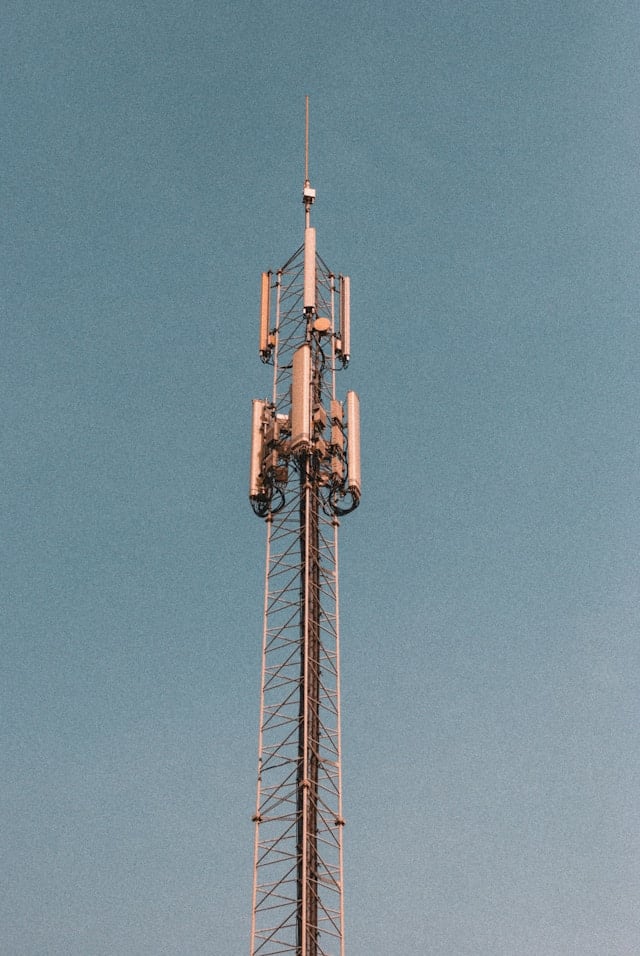The deployment of 5G networks across the UK has sparked a technological revolution that is impacting many sectors, particularly the Internet of Things (IoT) startups. The IoT is a network of physical devices, vehicles, buildings and other items which are embedded with sensors, software, network connectivity and necessary electronics that enables these objects to collect and exchange data. The introduction of 5G, with its promise of high speed, low latency communication and the ability to support a vast number of IoT devices, is poised to transform the landscape for startups in this sector. This article delves into the different ways in which 5G deployment is affecting IoT startups in the UK.
The Promise of 5G Connectivity for IoT Startups
With its high-speed data communication capabilities and low latency, 5G is set to revolutionize the way IoT startups operate. The new technology offers a superior level of performance compared to 4G and previous generation networks, making it ideal for IoT applications that require real-time, reliable communication.
En parallèle : How Can UK Energy Startups Leverage Government Grants for Innovation?
One of the most significant impacts of 5G is enhanced mobile broadband (eMBB), which provides connectivity for applications that require higher data rates, including augmented reality (AR), virtual reality (VR), ultra-HD video streaming, and interactive gaming. Enhanced mobile broadband enables IoT startups to provide high-quality, interactive services that were not feasible with previous generation networks.
Moreover, 5G supports IoT applications that demand ultra-reliable, low-latency communications (URLLC). These applications include autonomous vehicles, industrial automation, remote surgery, and smart city applications, among others. Thanks to 5G, IoT startups can now create solutions that require quick, reliable responses, transforming various industries in the process.
A lire aussi : How Can UK Precision Engineering Companies Benefit from Additive Manufacturing?
Accelerating IoT Startups’ Adoption of 5G Technology
The deployment of 5G networks has significantly accelerated the adoption of this technology by IoT startups. Startups are realizing the potential of 5G in improving their services, enhancing the user experience, and creating innovative solutions that are aligned with the current technological trends.
IoT devices generate enormous amounts of data that require high-speed networks to process and analyze. The deployment of 5G technology has enabled IoT startups to handle this data more efficiently, leading to improved services.
Furthermore, 5G has opened up new opportunities for IoT startups to develop applications that were previously not possible due to the limitations of older network technologies. The high-speed, low-latency nature of 5G networks has brought about a new wave of innovation in IoT startups, particularly in the areas of AR, VR, autonomous vehicles, and smart city applications.
Enhancing IoT Startups’ Service Delivery
One of the significant ways that 5G is impacting IoT startups is by enhancing their service delivery. The high speeds, low latency, and high capacity of 5G networks make it possible for IoT startups to deliver services that require real-time responses and high-quality connectivity.
For instance, IoT startups that provide services in sectors such as healthcare, manufacturing, and transportation can now leverage the capabilities of 5G networks to deliver services more efficiently and effectively. In healthcare, IoT startups can use 5G to provide real-time monitoring of patients, remote diagnosis, and treatment, improving patient outcomes. In manufacturing, IoT startups can use 5G to automate processes, monitor equipment in real-time, and improve efficiency.
The Challenges IoT Startups Face with 5G Deployment
While the benefits of 5G for IoT startups are evident, there are also challenges that these startups need to address. One of the main challenges is the high cost of 5G deployment. The technology requires significant investment in infrastructure, equipment, and software, which can be a barrier for startups with limited resources.
In addition, there are also technical challenges related to the deployment of 5G. For instance, the frequency bands used by 5G have a shorter range, which means that more base stations are needed to cover the same area compared to 4G. This can increase the complexity of network deployment and operation.
Finally, there are regulatory challenges related to the use of 5G. IoT startups need to comply with regulations related to data security, privacy, and telecommunications. These regulations can vary from one region to another, adding to the complexity of deploying 5G-based IoT solutions.
5G: A Game Changer for IoT Startups
Despite the challenges, 5G remains a game changer for IoT startups in the UK. It provides an unprecedented opportunity for these startups to develop innovative solutions that can transform various sectors. With its high-speed, low-latency capabilities, 5G is set to revolutionize the way IoT startups operate, paving the way for the next wave of technological innovation.
5G’s Influence on IoT Startups in Smart Cities and Transportation
The adoption of 5G technology by IoT startups is significantly impacting smart cities and transportation. 5G’s high speed, low latency, and high bandwidth are opening up new possibilities for IoT startups designing solutions for urban environments and transportation infrastructures.
Smart cities, a concept that involves integrating various IoT devices into urban infrastructures, have been a significant beneficiary of 5G networks. The high-speed, low-latency nature of 5G enables real-time data transfer from a wide array of devices, enhancing the efficiency of city operations. For instance, IoT startups have used 5G technology to develop smart parking systems, real-time traffic management systems, and intelligent street lighting, among others.
In transportation, IoT startups are leveraging 5G’s capabilities to promote a digital transformation in the sector. For example, the development and deployment of autonomous vehicles is one area where IoT startups have hugely benefitted. With 5G, these startups can enable real-time, high-speed communication between vehicles and infrastructure, crucial for the safe operation of autonomous vehicles.
Despite the opportunities, IoT startups in these sectors must also navigate challenges. These include the high cost of setting up 5G infrastructure and complying with varying regional data security and privacy regulations.
Conclusion: The Future of 5G and IoT Startups
Despite the challenges of deploying 5G networks, the technology is indeed a game changer for IoT startups in the UK. Its high speed, low latency, high bandwidth, and ability to support a vast number of IoT devices is revolutionizing various sectors – from healthcare to manufacturing, and from smart cities to transportation.
However, as we move forward, it is vital for these startups to consider the costs associated with 5G adoption and the technical and regulatory hurdles they might face. While 5G opens up a world of opportunities, it does not come without its challenges.
But, considering the pace of digital transformation and the undeniable benefits of 5G, it is evident that the technology will continue to play a key role in shaping the future of IoT startups. With ongoing advancements in 5G technology, we expect a further boom in innovative IoT applications and services that will continue to transform our lives in unprecedented ways.











